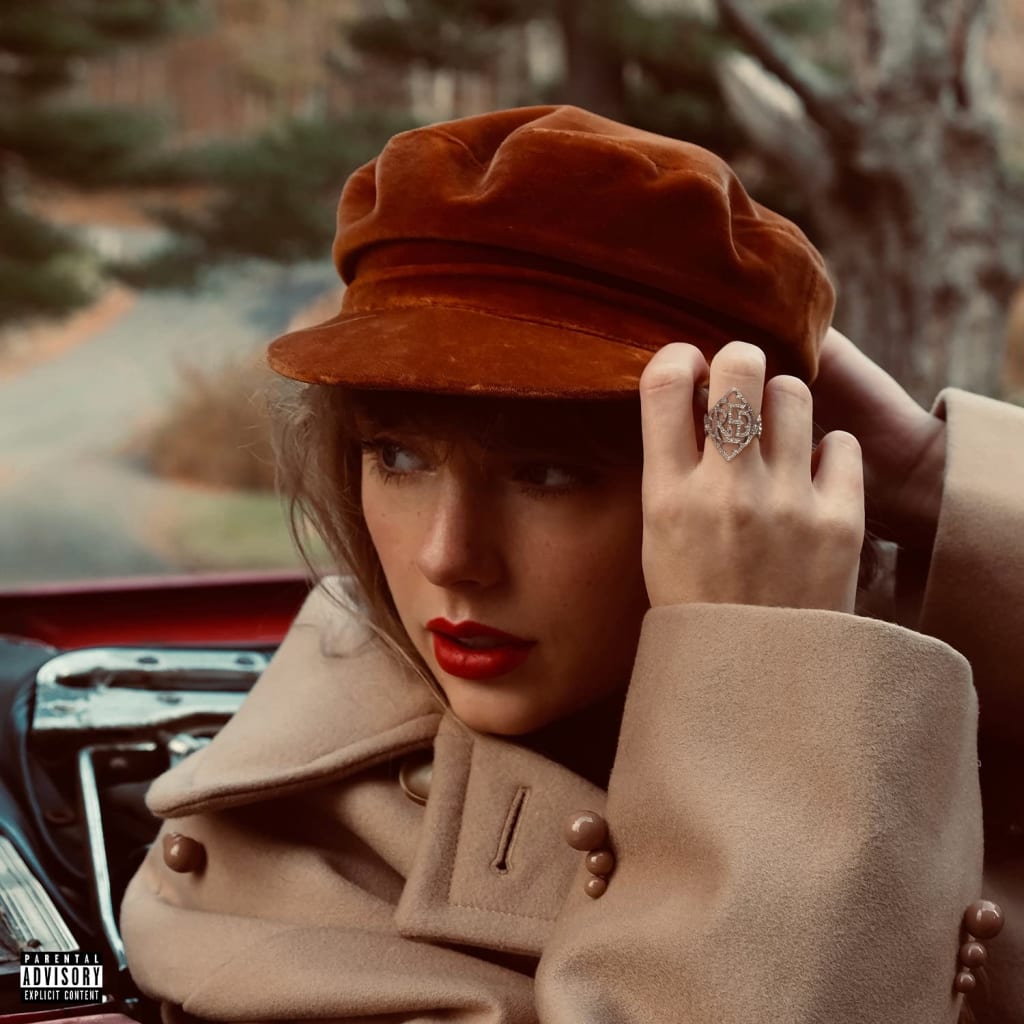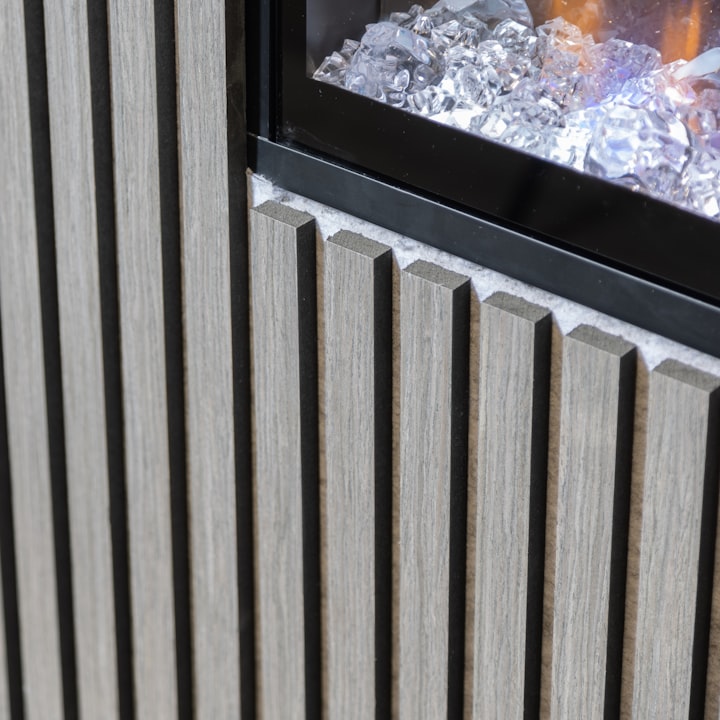'All Too Well (10 minute version) Analysed
CONFIRMED: Taylor Swift is Shakespeare Reincarnated.

With the release of the 10 minute version of All Too Well, us Swifties have been gifted new lyrics to pick apart, and pick apart we shall. In case you are unfamiliar, it details the breakdown of her relationship with actor Jake Gyllenhaal in an emotional outpour more potent than any other breakup song- and I would argue this song, like many of her others, are much more than your bog-standard breakup song. Miss Swift has an uncanny ability for storytelling, giving a full insight into both her emotions, and the surrounding context.
(It goes without saying that this is just my interpretation of the lyrics, and not a commentary on anything of truth or speculation on the realities of the relationship.)
Lyric Analysis
The song starts with a romantic, Autumnal scene of the pair 'getting lost upstate', with a carefree image and use of the present tense absorbing the listener in a sense of serenity and perfection. Her decision to begin the song with this image causes emotional investment right from the start, and she furthers this with the genius simile of 'Autumn leaves falling down like pieces into place'. The symbolism of Autumn is up for debate: it could be used as foreshadowing for the death of their relationship through the dropping leaves; or it could be a symbol of the comfort she felt at the start of the relationship. Her comparison to 'pieces into place' may show how she looked for positive signs in something that was clearly wrong, indicating that the circumstances around the relationship doomed it from the start, or on the flipside it shows how perfect it really was, and how the downfall of the relationship was due to nothing but human mistakes and cruelty, as even nature knew it was a perfect fit.
The pre-chorus is incredibly significant in showing her struggle to push away the memories. The monosyllabism of 'And I know it's long gone' shows the effort it takes to remove herself from the memory, and the immediate dive back into another memory at the chorus shows her efforts were unsuccessful. Symbolism is endless in this song, as she describes how he 'almost ran the red' because he was 'looking over at me', illustrating how they were both so consumed in the relationship that they skipped obvious flaws.
And with the second verse, we see the first reference to the title of the album- 'your cheeks were turning red'. I can't find any significance there, but this verse does a brutally good job of humanising him and making him a likeable character. She sets this up so well just for us to feel the same heartbreak she felt later in the song. The aggressive reference to his 'fuck the patriarchy key chain' simultaneously calls out the performative feminism prevalent in Hollywood, and due to the gap between 'fuck the patriarchy' and 'keychain' also shows Taylor's support of the message 'fuck the patriarchy', as the listener thinks this is the end of the sentence for a split second. Later comes my favourite line- 'we were dead and gone and buried check the pulse and come back swearing'- using a powerful tricolon, plosive language and the extended metaphor of the deceased relationship to show her frustration. Checking the pulse seems to imply they had tried- and failed- to resuscitate the relationship, and this attempt is seemingly revealed to be one sided as she 'reached for' him. The metaphor of the dead relationship is soon changed to just Taylor being dead, as he held her 'lifeless frame', possibly implying that it was actually him who attempted to rescue the relationship, when it was far too gone and she had already given too much of herself to it. The word 'frame' is an interesting choice- it dehumanises her, possibly reflecting how she felt dehumanised within the relationship, and also pushes the focus onto her body, alluding to the constant scrutiny it is put under- a call back to the 'fuck the patriarchy' line? Or a reference to how she felt he objectified and used her for her body?
The second chorus effortlessly brings us back to another image of perfection, 'dancing round the kitchen in the refrigerator light'. Conjuring up feelings of comfort and domesticity in this rom-com-esque scene, she reminds us of why she fought and felt so hard for this relationship, and constantly allows for the juxtaposition between happiness and pain in order to make the hard parts sting that bit more. It wouldn't be fair not to mention one of the new fan-favourite lines, 'You kept me like a secret, but I kept you like an oath'. The accusatory second person pronouns show her certainty in what she's saying (she has waited 10 years to say this publicly, after all), and the parallelism of the two similes portray the stark difference in attitudes within the relationship.
Miss Swift has always had a talent for gut wrenchingly emotional bridges, and this is no different. The uncertainty in the repetition of 'maybe' shows how broken down she was by this relationship, and also that despite signs to the contrary, she also feels blame for what happened. It is only with the third 'maybe' that her certainty returns, shifting the blame back onto him as he 'tore it all up', when he was 'casually cruel in the name of being honest'. The consonance of 'casually cruel' reflects his cutting actions, and having someone back up their cruelty with faux morals and values feels like a very universal experience, further emotionally investing us in the song with this one powerful line. I'm always reminded of Katy Perry's 'plastic bag floating through the wind' lyric in Fireworks when it gets to the line 'I'm a crumpled up piece of paper' (in All Too Well). It is the feeling of being disposable and discarded that links these two lines, showing how she gave her all- her one use- to him, and he could use her and discard her, remaining unscathed. Her perceived disposability could possibly link back to the theory that the 'scarf' she left back in the first verse was her virginity, as she feels her virginity was treated as disposable, in it's single use nature. Lastly, the trailing tricolon of 'all, all, all', portrays her being overwhelmed by the memories and intensity of that bridge.
Verse 3 brings some new fan favourite lyrics- 'I'm in a new hell every time you double-cross my mind'. The biblical allusion of hell obviously links to endless suffering, inflicted by a kind of omnipotent force, possibly alluding to how she felt Jake had power over her due to the age gap, and has now put her through these never ending circles of hell. Use of the phrase 'double-cross' is incredibly clever in both portraying how the mere thought of him, the fleeting crossing of her mind causes immense pain, and also how she feels betrayed and stabbed in the back. The line 'A never needing ever lovely jewel whose shine reflects on you', perfectly captures how objectified she was, with the idea of sitting still and looking pretty reexplained in a richer metaphor comparing herself to an accessory whose only purpose is to make him look better, and not someone with human needs. The alliteration of 'never needing' isolates and emphasises the idea of being needy, and how she may have felt shamed for expressing her needs and wants. This line could be an explanation of the appeal of the age gap to him- women's beauty is often too strongly associated with youth, so a younger woman could make a better accessory to him. Her youth is only made clear at the end of this verse, revealing that she was only just 'turning 21' by the time the relationship fell apart.
In the next chorus, Taylor Swift yet again demonstrates her ability to pick up on common sayings and take them further, with the lyric 'time won't fly, it's like I'm paralysed by it', reflecting how she can't get away from this era of her life. The scarf metaphor is reintroduced, describing how he keeps it because it 'reminds you of innocence', furthering the theory that it is a euphemism for her virginity, and therefore subtly criticising him for valuing the innocence of younger, more vulnerable girls. This criticism is more blatant in verse 4, stating bluntly how 'I'll get older but your lovers stay my age'. The rest of this verse is similarly blunt, in asking him directly 'just between us, did the love affair maim you too?', after describing how her pain physically manifested as losing 'half her weight' and comparing herself to a 'soldier', therefore equivalating the breakup with a war. The irony of 'Just between us' is emphasised in a later repetition of this line, and shows her boldness in falsely promising privacy in a medium as public as a song. Asking if it maimed him 'too' is painful to hear as a bystander to this breakdown of the relationship, as despite the pain she endured due to his actions, she still looks to him for shared experience and comfort, adding to a sense of hopelessness when looking to move on due to the ongoing emotional reliance. The final nail in the coffin comes with the 'first fall of snow', using a beautiful image with symbolism of death to refer to the end of the relationship, showing how it was beautiful despite the pain.
The relentless repetition of 'Wind in my hair, I was there, I was there , Down the stairs, I was there, I was there , Sacred prayer, I was there, I was there , It was rare, you remember it all too well', provides a final reminder of the inescapability of her pain and memories, as it links back to the romantic scenes referenced throughout. This portrays how easily memories are triggered, and emphasises the jarring difference between the happiness during, and the agony afterwards. The repetition of 'I was there' feels as if she is reminding herself that it was all real, and the good parts can still exist untainted by the bad. With a final focus on the more beautiful memories, a subtle message of hope is given- just because it ended badly, it doesn't mean all the good parts are ruined.
About the Creator
Hannah Macdermott
the rantings and ramblings of an inconstant mind.






Comments
There are no comments for this story
Be the first to respond and start the conversation.